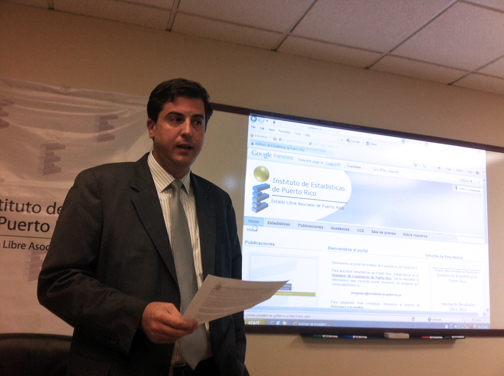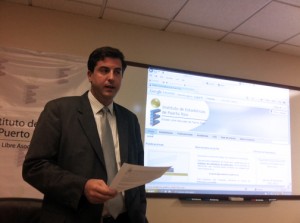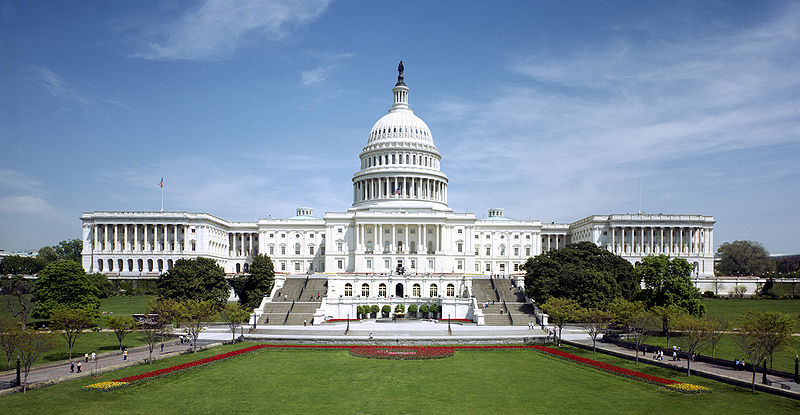Statistics Institute submits $1.2M budget for fiscal ’14

Puerto Rico Statistics Institute Executive Director Mario Marazzi asked the Legislature to assign the agency a budget of a little more than $1.2 million for fiscal 2014, when it has set out to undertake 25 projects to expand and improve information databases.
While $1.01 million would come from the General Fund to ensure the functioning of the Institute and the continuity of its projects, another $250,000 would come as a special assignment for improvements in the statistical methodology used to calculate the island’s Gross Domestic Product and employment surveys.
In testimony presented Wednesday, Marazzi noted that the requested budget represents a fraction of the $5 million assigned by the law that created the Institute in 2003, which “never materialized.”
The Statistics Institute is currently operating with a budget of $641,000, or “21 percent of what was anticipated would be required” to run the agency, he said.
“For starters, we should indicate that this administration’s government platform emphasizes the need to strengthen government statistics functions in various areas such as public safety, education, and transparency,” he said. “We believe it is important that in subsequent years the Institute receives the assignments that allow us to … meet a variety of needs that still need to be addressed and that are not included in this petition.”
Despite the financial shortfall, Marazzi said the agency has pushed forward with a number of projects and is looking to get started on others in the pipeline.
Over the next fiscal year, the Institute has set out to:
- Expand and update the Puerto Rico statistics inventory;
- Advise Puerto Rico Trade in the implementation of the Jobs Act Now law;
- Complete the development of the School Dropouts Early Detection System and make the tool available to schools and teachers;
- Advise the Education Department in developing a Dropout Report required by Law 165-2011;
- Ensure adequate representation of the government before the U.S. Census Bureau;
- Prepare a “Homeless Count” for the Family Department;
- Develop a database of child abuse cases, in collaboration with the Family Department;
- Prepare a website to collect statistical data of child protection cases, currently filled manually by Family Department officials;
- Develop new supplemental questionnaires to the Labor Department’s “Labor Force Survey” so as to leverage the households survey to produce new statistics on Puerto Rico, which have never been prepared and are needed;
- Organize a public comment period for the Health Department’s new death certificate;
- Develop a Statistical Release Schedule for 2014;
- Respond to requests for statistics from citizens, researchers, agency heads, legislators, businesspeople, etc.;
- Seek to ensure that international and federal data banks contain complete information on Puerto Rico;
- Advise the Puerto Rico Federal Affairs Administration in promoting the inclusion of the island in statistics produced by federal government agencies and non-governmental agencies;
- Develop methodology and a program to measure the government workforce in a standardized way using the Office of the Comptroller’s job registry;
- Advise the Education Department in relation to statistics on the incidence of violent or criminal activity in schools that the agency must provide the Justice Department, the Puerto Rico Police, the Office for Youth Affairs and the Legislature;
- Review the Retail Sales Survey methodology, update the questionnaire and sample, and ensure the industries are identified using the North American Industrial Classification System;
- Advise the Education Department in implementing the Program for International Student Assessment tests in Puerto Rico;
- Complete various publications, namely the 2012 Migrant Profile, the 2011-2012 Educational System Profile, and the Purchasing Managers Manufacturing Index for Puerto Rico;
- Conduct the 2012-13 Puerto Rico Science and Technology Survey, which measures the economic value of local R&D. The last survey was done in 2009;
- Coordinate education statistics on Puerto Rico for UNESCO and telecommunications statistics for the International Telecommunications Union;
- Expand the workshops and academies program to train government workers responsible for creating statistics;
- Coordinate participation of government statistical personnel and develop opportunities in the U.S. mainland, through the University of Maryland’s “Joint Program on Survey Methodology;”
- Carry out educational activities and exhibits to mark the International Year of Statistics 2013, and;
- Modernize the Institute’s information systems.
“The reliability of the key statistics related to Puerto Rico’s economy has been questioned both in the international and federal and local scopes, which impacts the credibility that investors in the world could have toward Puerto Rico and its government, and it also increases financing costs that our government pays,” Marazzi said.
To get everything done, the agency needs four new jobs.














During my last 6-7 years in government, I repeatedly heard from Wall Street analysts that since the early 2000’s they did not entirely trust PRGovt-driven statistics and were flabbergasted that Federal agencies systematically excluded PR from federal statistics purportedly nationwide-in-scope, or simply adopted PRGovt-generated numbers rather than producing their own data, as they do in the states. Marazzi’s plans to improve PRGovt-generated statistics, as well as persuade the feds to fully include PR in theirs, are steps in the right direction that merit the minimal additional funding that he requests. If he can be accused of anything, perhaps it would be of being too timid in his budget request!